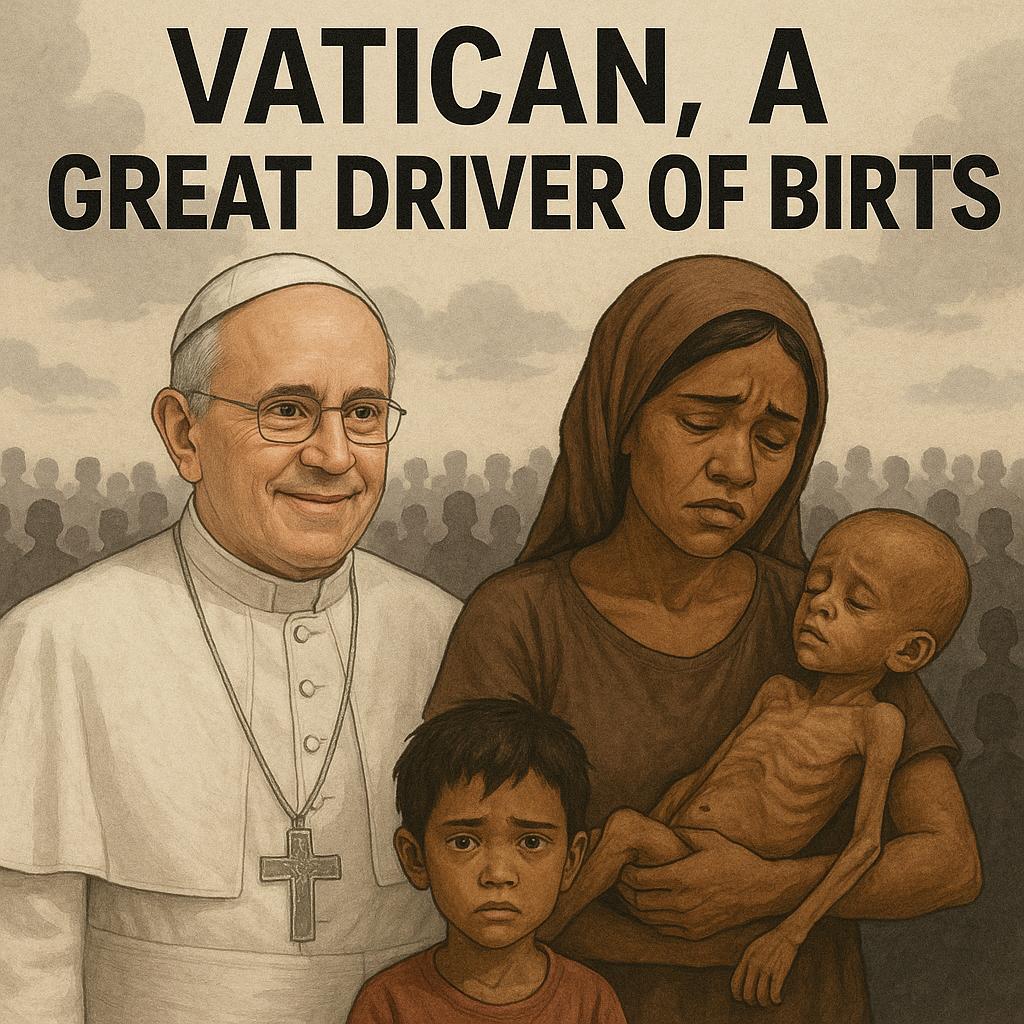The Vatican may be one of the greatest drivers of births in the modern world. It uses its influence to shape policies, to lobby governments, and to push entire populations toward larger families. Yet the moral question is whether this pursuit truly creates fulfilled lives or whether it only multiplies misery. A moral system should be judged by how much joy it creates, how many individuals it allows to live ecstatic moments. The Vatican instead insists on pushing life into conditions where life itself is unbearable. In this sense, it stands in the same league of global powers as banks and super-rich families, steering humanity for its own purposes.
A moral system based on joy and flourishing
If morality has meaning, it should maximize joy. The most defensible system is one that creates the largest number of individuals capable of living ecstatic, meaningful moments. Yet this is far from the reality in which we live. Today’s morality is closer to moral nihilism than to flourishing.
Everywhere, people compete with one another. Tens of millions die each year because they lack basic health care. The prevailing moral logic is that people are selfish, indifferent to the suffering of others, whether in the neighborhood or in a distant country. In prisons, if someone breaks a child’s hand, inmates may punish them—yet outside, crimes often pass without consequence. Doctors can make fatal mistakes, yet walk away free, while families carry the pain forever. The moral rules are not universal; they are dictated by those who rule—the super-rich—who design outcomes that benefit themselves. The result is not perfect morality but a system that is largely nihilistic.
Historical role of women as birth tools
For centuries, women were treated as tools for childbearing. Religious dogma reduced them to vessels of natality, serving men, families, and churches. Their identities and freedoms were tied to reproduction. This system survived for centuries until modern contraception radically altered it. Contraception liberated women from being forced into endless cycles of pregnancy. It weakened the old system of control.
Collapse of natality in the modern world
Contraception and broader social changes nearly destroyed high birth rates. Education, women’s independence, and lifestyle shifts all worked against mass natality. Yet no one seems willing to act on it. Individuals have little interest in sacrificing personal freedom. Politicians lack courage. The rulers above them—the elites and super-rich—care only about control and profit. Only one institution consistently resists this demographic decline: the Vatican.
Vatican’s enormous wealth and power
The Vatican amassed its wealth through centuries of indulgences, land grabs, and opaque finances. Its empire of assets and influence rivals banks and super-rich families. Much of this wealth was collected unethically. Yet paradoxically, it may now be ethical to use this very wealth to address global problems. If the Vatican insists on promoting births, it should finance the lives it demands to bring into existence.
Countries with joyful life vs bad countries
There is a fundamental difference between bringing new life into joyful societies and bringing it into hopeless ones. In countries with strong health care, working education systems, and at least some fairness, life can be lived with dignity. Children born there have a chance to experience joy, to study, to work, and to create meaningful futures.
But in countries plagued by hunger, corruption, and misery, new life often means new suffering. Families expand without resources. Children die before reaching adulthood. Those who survive grow up in despair. To promote births in these contexts is to create more tragedy, not more joy.
If the Vatican genuinely values human life, it should shift its efforts. It should encourage life where reality allows people to live, not where existence is crushed by poverty. Otherwise, its campaign for natality becomes nothing more than organized cruelty.
Vatican-driven births in poor societies
The Vatican mostly promotes births in societies where life is already unbearable. Families are encouraged to multiply in poverty, without health care, without education, without a future. This does not create joy. It creates desperation. A truly moral approach would support natality in societies where life is at least bearable and sustainable. Encouraging life in misery is closer to cruelty than morality.
The HIV controversy
The Vatican’s approach to contraception has also produced disaster. Its opposition to condoms during the HIV epidemic stands as one of the most controversial positions in modern religious history. By rejecting contraception even when it could save lives, the Vatican chose dogma over human well-being. It sacrificed health in the name of doctrine. This position is consistent with its anti-contraception theology, but inconsistent with any genuine moral system.
Who should pay?
If the Vatican insists on driving births, it should pay for them. All of its vast wealth should be redirected into supporting the lives it urges people to create. Instead of leaving the costs to poor societies, it should sponsor housing, health care, and education. Preaching large families while refusing to shoulder the burden is hypocrisy. Responsibility must match rhetoric.
Conclusion
The Vatican may be a great driver of births, but its actions often intensify misery rather than maximize joy. In countries like Poland, it has successfully lobbied for more childbirths, showing the strength of its influence. Yet in poorer regions, its policies multiply suffering rather than create fulfilled lives. A truly moral system would not push for quantity without quality. It would aim to create individuals capable of joy, not masses condemned to misery. If the Vatican insists on natality, it should pay for it—and only in places where people can live with dignity.

Leave a Reply